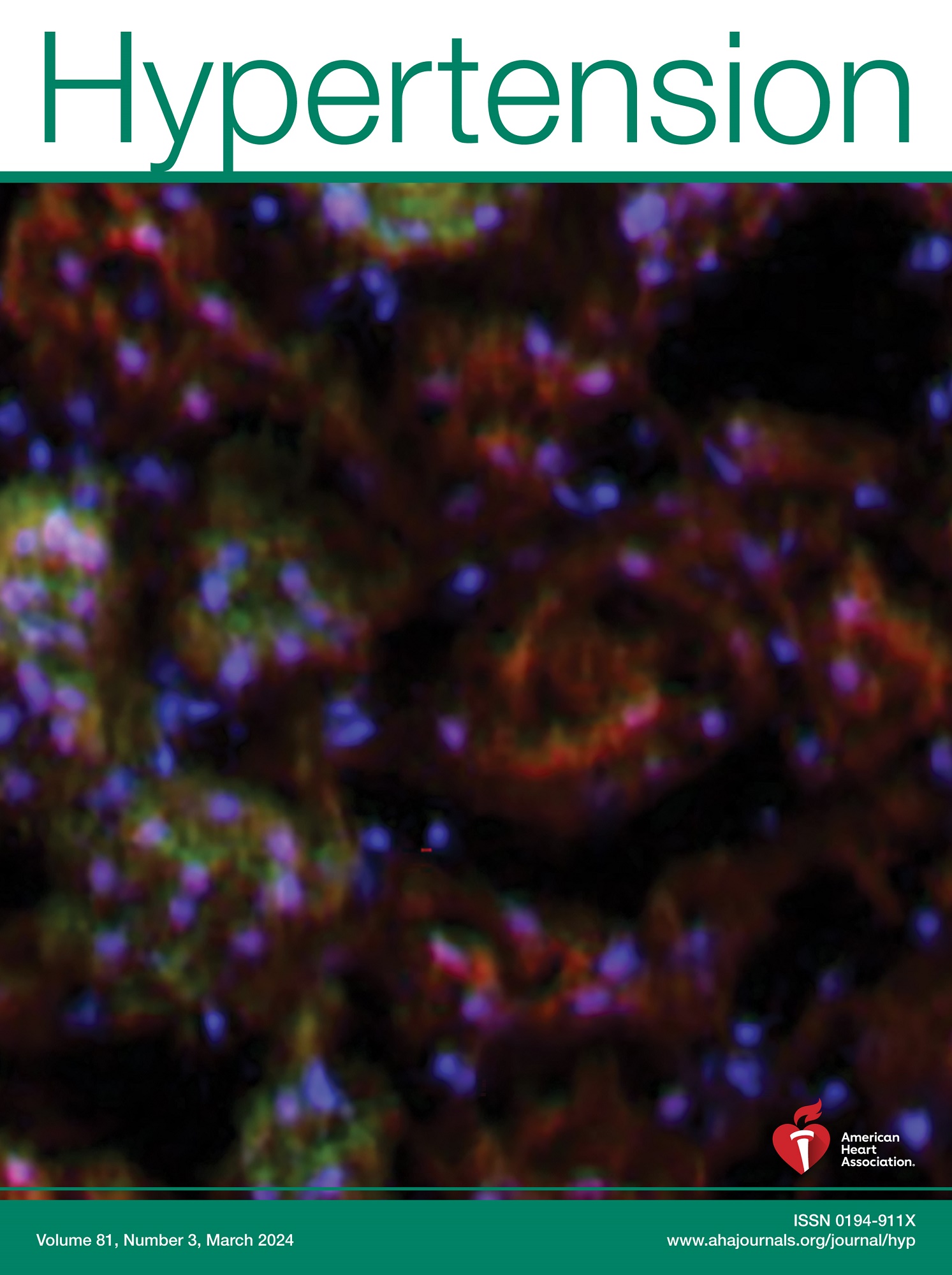Cardiac Sympathetic Nerve Activity Is Not Elevated in Ovine Hypertensive HFpEF.
IF 8.2
1区 医学
Q1 PERIPHERAL VASCULAR DISEASE
引用次数: 0
Abstract
BACKGROUND The sympathetic nervous system is a crucial mediator of cardiovascular variables during exercise. However, its role in heart failure with preserved ejection fraction (HFpEF), where exercise intolerance is a cardinal feature, is poorly understood. Currently, there is scant and no clear evidence of heightened cardiac sympathetic nerve activity (CSNA) in HFpEF, which might explain why β-blockers lack convincing prognostic benefit in this syndrome. Accordingly, we utilized gold standard direct recordings to test the hypothesis that resting levels of CSNA are not elevated in HFpEF. We also tested whether β-blockers in HFpEF cause further impairments in the hemodynamic determinants of exercise capacity. METHODS Experiments were conducted in a conscious large animal (ovine) model of hypertensive HFpEF that exhibits similarly impaired exercise hemodynamics as patients with HFpEF. Direct recordings of CSNA were made in this model and compared with non-HFpEF sheep. In addition, hemodynamic responses to graded treadmill exercise testing were compared before and after β-blocker administration. RESULTS Gold standard direct recordings of resting CSNA were not elevated in HFpEF sheep. Inhibition of this activity using a β-blocker further impaired exercise hemodynamics (cardiac output, heart rate and pulmonary capillary wedge pressure) in HFpEF sheep. In addition, non-HFpEF and HFpEF sheep exhibited differential exercise hemodynamic responses to β-blockers. CONCLUSIONS Our data demonstrates that CSNA is not elevated in an ovine model of hypertensive HFpEF and suggests that favorable exercise hemodynamics in HFpEF are reliant upon β-adrenergic activation. Our findings provide a mechanistic rationale for why β-blockers should be avoided in patients with HFpEF.绵羊高血压性HFpEF患者心脏交感神经活动不升高。
背景交感神经系统是运动过程中心血管变量的重要中介。然而,它在保留射血分数心力衰竭(HFpEF)中的作用,其中运动不耐受是一个主要特征,知之甚少。目前,没有明确的证据表明HFpEF患者心脏交感神经活动(CSNA)升高,这可能解释了为什么β受体阻滞剂在该综合征中缺乏令人信服的预后益处。因此,我们利用金标准直接记录来检验HFpEF患者静息时CSNA水平未升高的假设。我们还测试了HFpEF中的β受体阻滞剂是否会进一步损害运动能力的血流动力学决定因素。方法在高血压HFpEF的有意识大动物(羊)模型中进行实验,该模型表现出与HFpEF患者相似的运动血流动力学受损。在该模型中直接记录CSNA,并与非hfpef羊进行比较。此外,比较β受体阻滞剂给药前后在分级跑步机运动试验中的血流动力学反应。结果HFpEF羊静息CSNA金标准直接记录值未升高。使用β受体阻滞剂抑制这种活性进一步损害了HFpEF羊的运动血流动力学(心输出量、心率和肺毛细血管楔压)。此外,非HFpEF和HFpEF绵羊对β-阻滞剂表现出不同的运动血流动力学反应。结论:我们的数据表明,在羊高血压性HFpEF模型中,CSNA没有升高,表明HFpEF中良好的运动血流动力学依赖于β-肾上腺素能激活。我们的研究结果为为什么β受体阻滞剂应该避免在HFpEF患者中使用提供了一个机制上的理论依据。
本文章由计算机程序翻译,如有差异,请以英文原文为准。
求助全文
约1分钟内获得全文
求助全文
来源期刊

Hypertension
医学-外周血管病
CiteScore
15.90
自引率
4.80%
发文量
1006
审稿时长
1 months
期刊介绍:
Hypertension presents top-tier articles on high blood pressure in each monthly release. These articles delve into basic science, clinical treatment, and prevention of hypertension and associated cardiovascular, metabolic, and renal conditions. Renowned for their lasting significance, these papers contribute to advancing our understanding and management of hypertension-related issues.
 求助内容:
求助内容: 应助结果提醒方式:
应助结果提醒方式:


